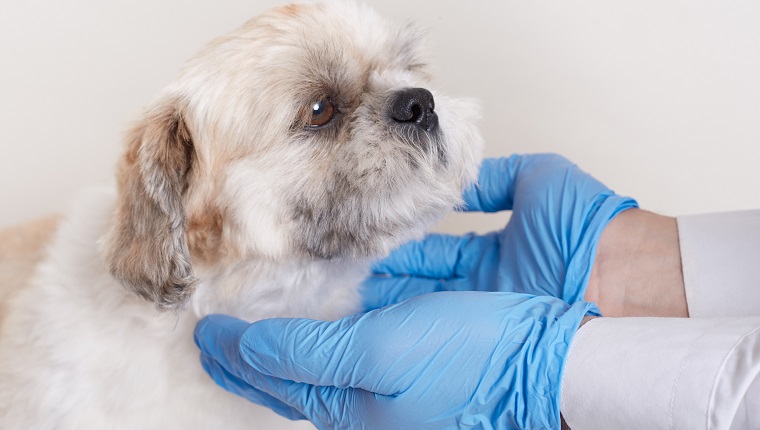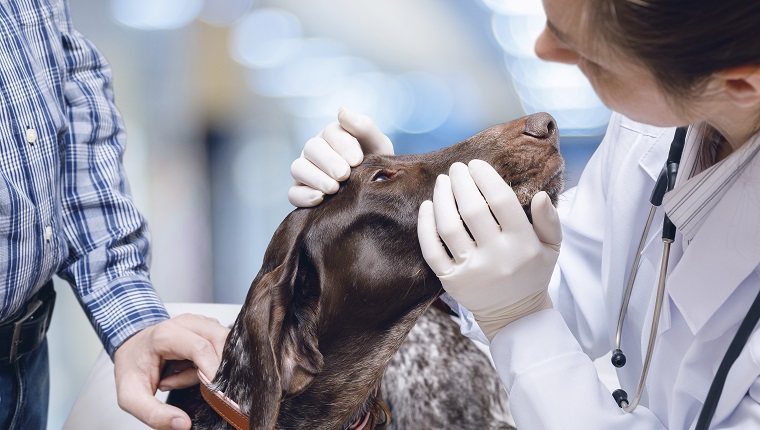Nosebleeds in dogs, medically known as epistaxis, can be distressing for dog parents to witness. In many cases, result from trauma to the area or some sort of upper respiratory tract infection.
While some causes of nosebleeds in dogs are more serious, there are also a number of basic first aid steps that dog parents can carry out themselves to try to alleviate the issue.
However, if you see signs that your dog’s nose is bleeding, then you should consult your veterinarian for a proper diagnosis and course of treatment. Here’s what you should know about the symptoms, causes, and treatments of nosebleeds in dogs.
Symptoms Of Nosebleeds In Dogs
Nosebleeds in dogs are pretty easy to spot, as blood emerges from the dog’s nose. Some of the other secondary symptoms can include:
- Vomiting
- Swelling around the nose area
- Pawing at the nose area
Causes Of Nosebleeds In Dogs

Nosebleeds in dogs most commonly result from trauma to the area. Some of the other causes may include:
- Nasal tumors
- An object being stuck in the nose
- Side effect of ingesting rat poison
- Fungal infections
- Hemophilia
- Reaction to medical drugs
Veterinary & At Home Treatments
If you notice that your dog is having a nosebleed, you can carry out some basic first aid procedures at home to try and curb the issue, preferably with your vet’s guidance.
Keeping your dog in a calm state is key, along with using an ice pack along the bridge of your dog’s nose. The cold of the ice pack will help to constrict some of the blood vessels, which in turn can stop the bleeding.
In cases of persistent nose bleeds, your veterinarian will want to carry out a physical examination and ask questions about any recent incidents that might have caused the issue.
These might include trauma to the nose area, being around vermin poisons, or starting a new course of medicine. Vets may also use blood tests — and subsequent blood clotting tests — to determine the cause .
When it comes to treatment, your vet will want to identify and treat the underlying cause of the nosebleeds. Depending on the underlying cause, this might involve a course of medication.
As ever, if your vet prescribes medicine for your dog, it is vital that you stick precisely to the dosage and frequency instructions and complete the full course of medication.
In cases where anxiety might be a factor, making changes at home to create a more calming environment might prove effective.
Has your dog ever had frequent nosebleeds? Did your vet figure out the cause? Tell us all about it in the comments below.









